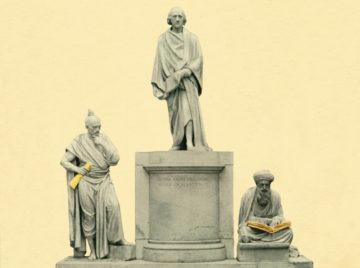Soni Wadhwa at the Asian Review of Books:
 Knowledge is power. This is a statement often made to reinforce the relentless pursuit of data, information and know-how to get ahead in business and technology. Scholarship or studiousness is seen as a virtue that can give one an edge over the others in the face of tough competition. With such a celebration of knowledge, it appears that anything can be legitimized if it is connected with knowledge creation or dissemination. In The East India Company and the Politics of Knowledge, Joshua Ehrlich examines a much stronger, to the point of being literal, historical connection between knowledge and power.
Knowledge is power. This is a statement often made to reinforce the relentless pursuit of data, information and know-how to get ahead in business and technology. Scholarship or studiousness is seen as a virtue that can give one an edge over the others in the face of tough competition. With such a celebration of knowledge, it appears that anything can be legitimized if it is connected with knowledge creation or dissemination. In The East India Company and the Politics of Knowledge, Joshua Ehrlich examines a much stronger, to the point of being literal, historical connection between knowledge and power.
The subject of his study is the late 18th- to mid-19th-century regime of the East India Company. The Company was questioned by Indian sovereigns as well as the British Parliament for its pretense to run Indian territory it captured as if it were a sovereign power. After all, they objected, it was absurd for a commercial entity to have any credentials for governance.
More here.
